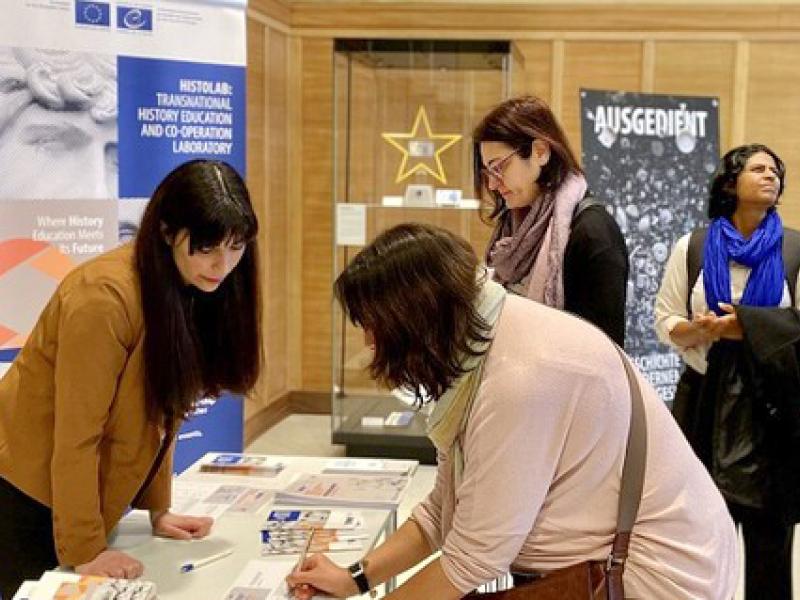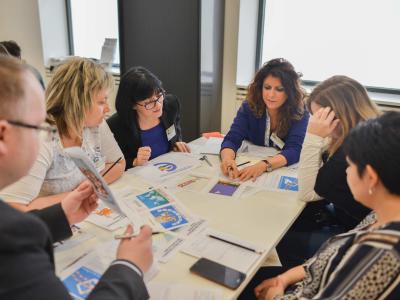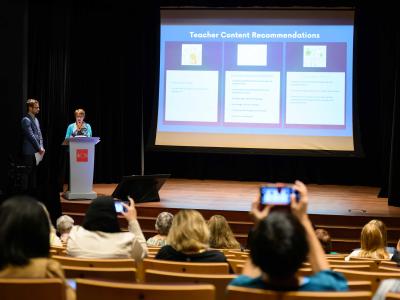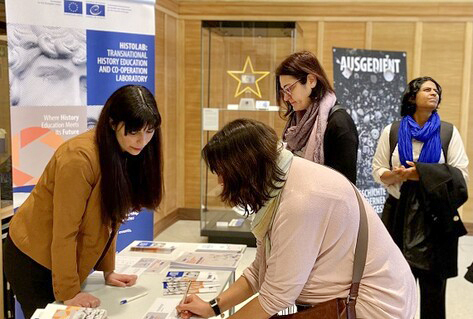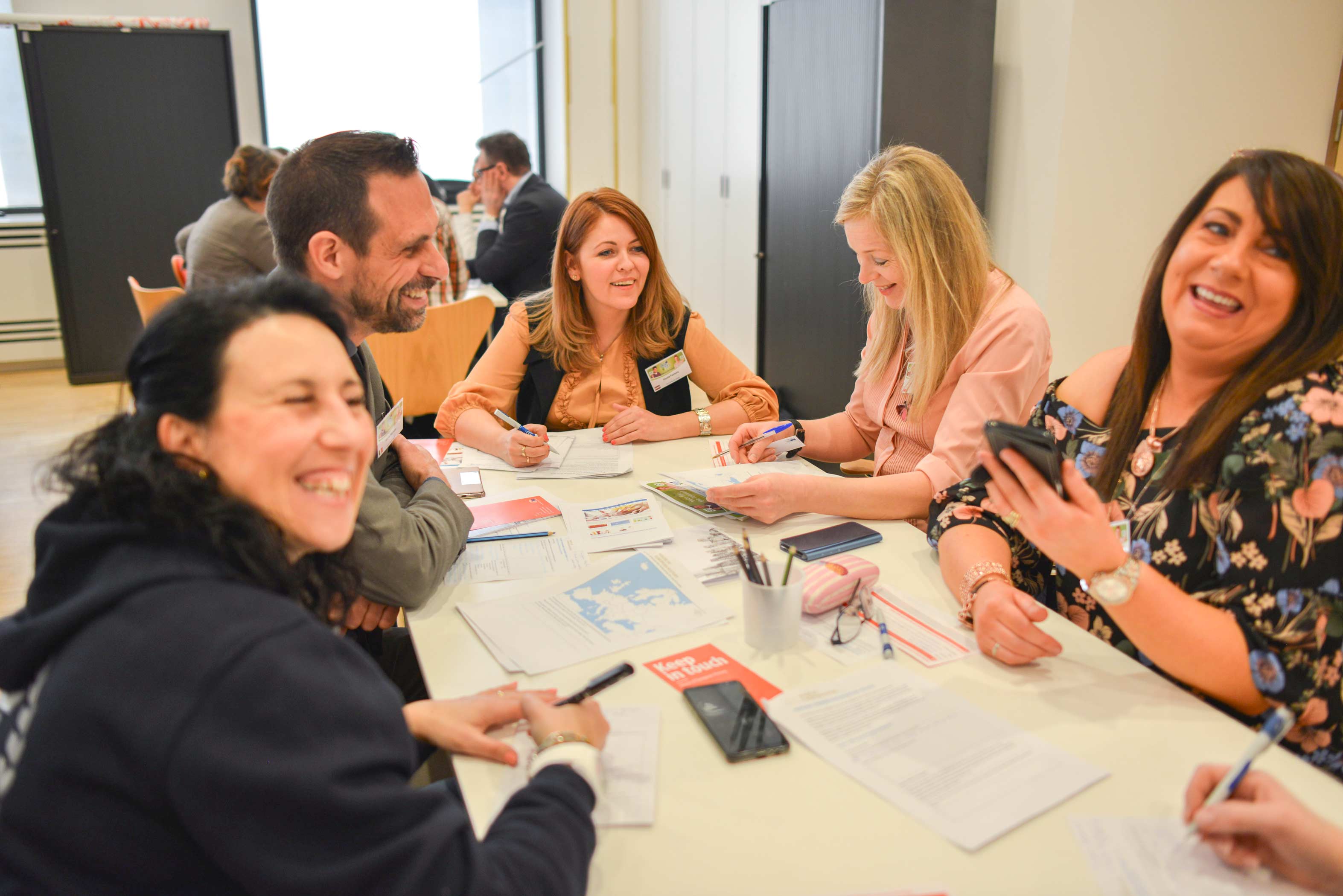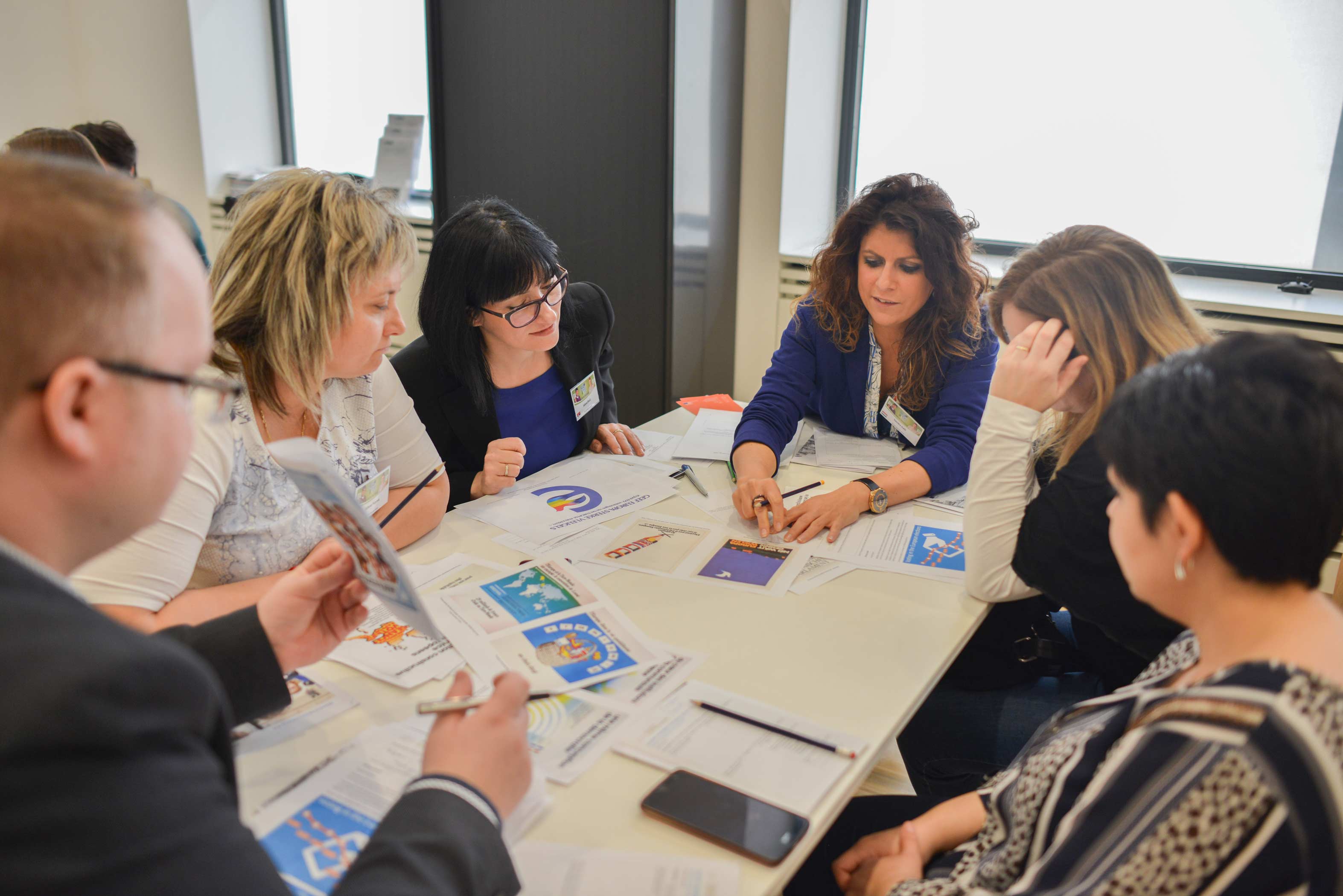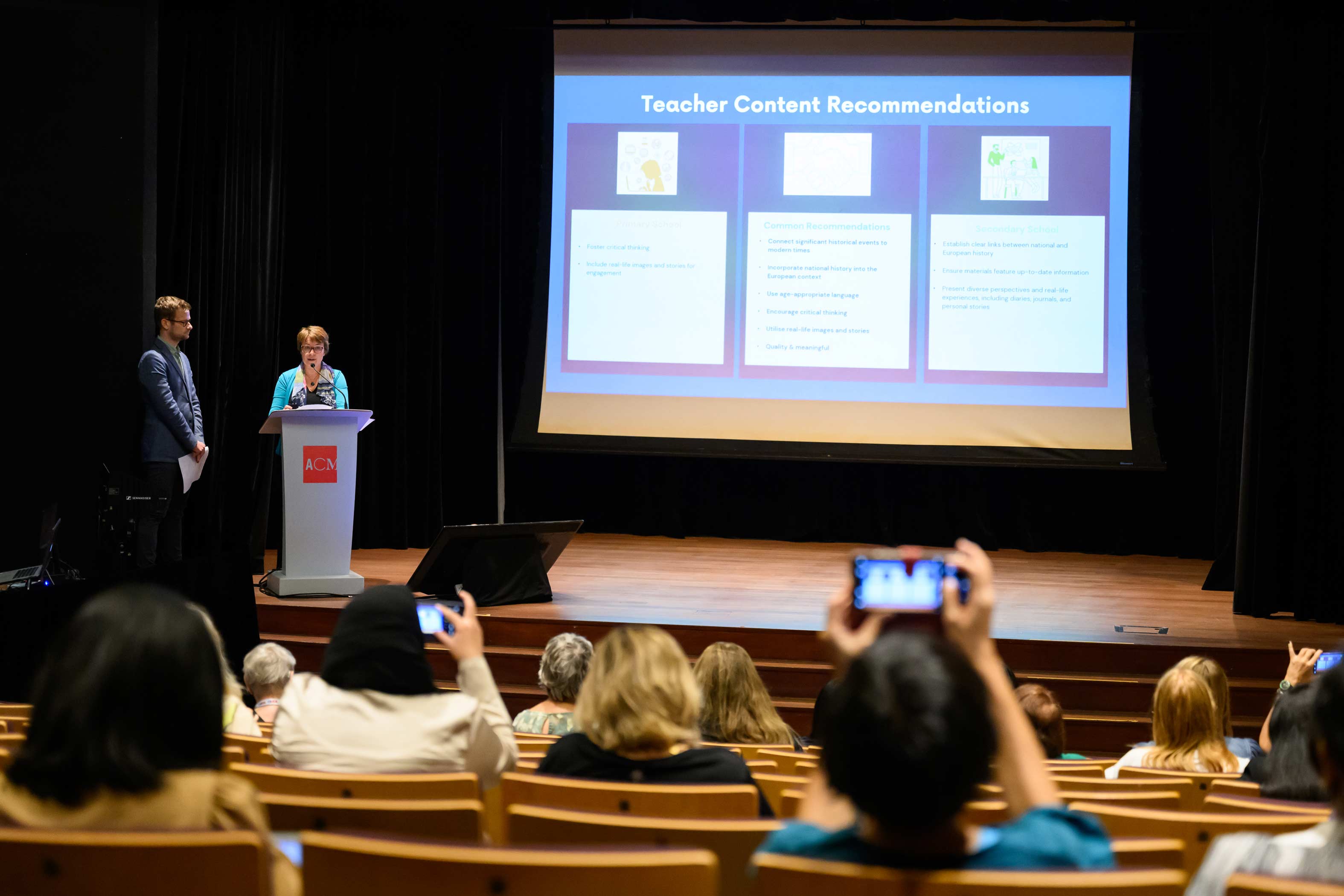Through dedicated Educational Partnerships, the Learning and Outreach Team strives to foster interest in the multiplicity of perspectives on European History and inspire the next generation of critical thinkers. Our team of educators is experienced in delivering interactive educational encounters, which utilise the museum’s content to create dynamic programmes for you and your educational network that align with educational standards.
Networks
Since 2017, we have partnered with international teachers’ networks such as EuroClio, European School Education Platform and eTwinning, and the pedagogical team of the European Schools.
We have developed teachers’ workshops for the European Parliament Ambassador School Programme, Your Europe, Your Say (the annual youth event of the European Economic and Social Committee), Together.eu and Europe Direct.
In 2022, we joined The Special Committee on Remembrance Education (Bijzonder Comité voor Herinneringseducatie), and the advisory board of HISTOLAB.
Furthermore, we have educational partnerships with the International Holocaust Remembrance Alliance (IHRA) and the USC Shoah Foundation, to strengthen, advance and promote Holocaust education in Europe.
As part of this collaboration, we developed the IWalk tour.

Teacher conferences
Co-organising conferences that tackle European history from a transnational viewpoint is an important aspect of our mission, creating a network of educational change-makers all over Europe. In 2023 we hosted the HISTOLAB project, which focuses on innovation in history education, and new initiatives in research, academia, and teaching practices.
A preview of our future projects.
In 2026 we will co-organise the EuroClio Annual Conference. This conference is a professional development and training course that connects history, heritage, and citizenship educators. Each year EuroClio collaborates with a local partner to welcome between 100 and 200 educators and education professionals from across and beyond Europe. They participate in an intensive professional development course, exchanging best practices from academia, teaching and civil society organisations. The conferences span several days and consist of keynote lectures, active workshops, panel discussions, interactive sessions, cultural visits, and on-site learning activities.


